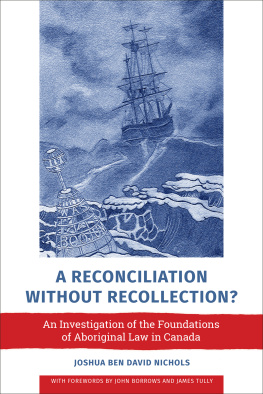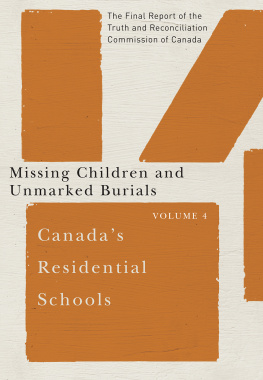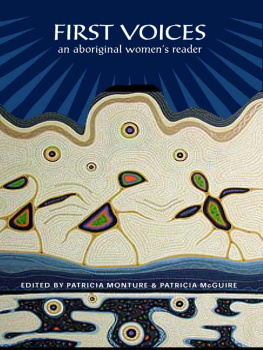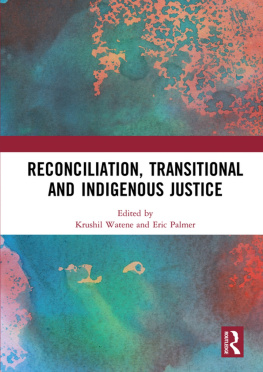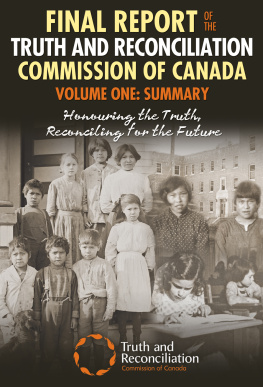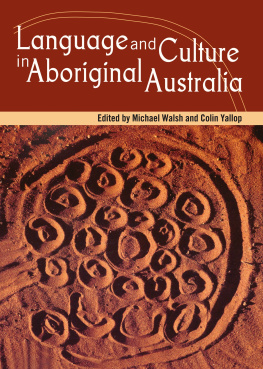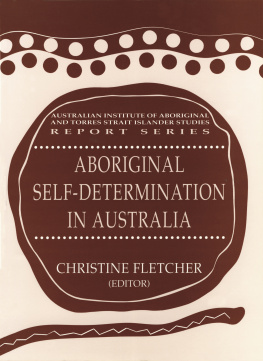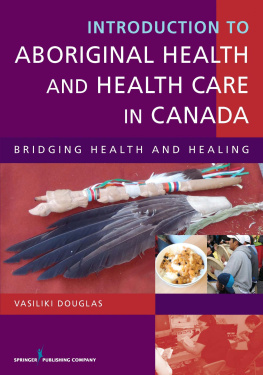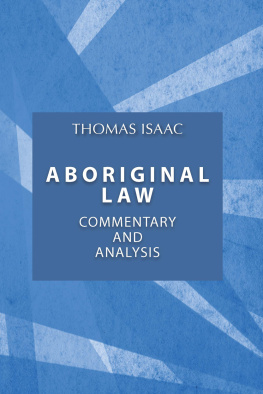The current framework for reconciliation between Indigenous peoples and the Canadian state is based on the Supreme Court of Canadas acceptance of the Crowns assertion of sovereignty, legislative power, and underlying title. The basis of this assertion is a long-standing interpretation of section 91(24) of Canadas Constitution as a plenary grant of power over Indigenous communities and their lands, leading the courts to simply bypass the question of the inherent right of self-government.
Blending legal analysis with insights drawn from political theory and philosophy, A Reconciliation without Recollection? is an ambitious and timely intervention into one of the most pressing concerns in Canada.
JOSHUA BEN DAVID NICHOLS is an assistant professor in the Faculty of Law at the University of Alberta.
A Reconciliation without Recollection?
An Investigation of the Foundations of Aboriginal Law in Canada
JOSHUA BEN DAVID NICHOLS
With forewords by John Borrows and James Tully
UNIVERSITY OF TORONTO PRESS
Toronto Buffalo London
University of Toronto Press 2020
Toronto Buffalo London
utorontopress.com
Printed in Canada
ISBN 978-1-4875-0225-6 (cloth)ISBN 978-1-4875-1498-3 (ePUB)
ISBN 978-1-4875-2187-5 (paper)ISBN 978-1-4875-1497-6 (PDF)
___________________________________________________________________________
Library and Archives Canada Cataloguing in Publication
Title: A reconciliation without recollection? : an investigation of the foundations of Aboriginal law in Canada / Joshua Ben David Nichols.
Names: Nichols, Joshua, 1978, author.
Description: Includes bibliographical references and index.
Identifiers: Canadiana 20190181761 | ISBN 9781487521875 (paper) | ISBN 9781487502256 (cloth)
Subjects: LCSH: Indians of North America Legal status, laws, etc. Canada. | LCSH: Indians of North America Canada Government relations. | LCSH: Indians of North America Canada Politics and government.
Classification: LCC KE7709 .N53 2020 | LCC KF8205 .N53 2020 kfmod | DDC 342.7108/72 dc23
___________________________________________________________________________
University of Toronto Press acknowledges the financial assistance of the International Law Research Program (ILRP) of the Centre for International Governance Innovation in the publication of this book. The ILRP gratefully acknowledges the funding contribution of the Province of Ontario.

The Centre for International Governance Innovation is an independent, non-partisan think tank with an objective and uniquely global perspective. Our research, opinions, and public voice make a difference in todays world by bringing clarity and innovative thinking to global policy making. By working across disciplines and in partnership with the best peers and experts, we are the benchmark for influential research and trusted analysis.
University of Toronto Press acknowledges the financial assistance to its publishing program of the Canada Council for the Arts and the Ontario Arts Council, an agency of the Government of Ontario.

In memoriam of my mother, Linda Nan Nichols (19472016)
Foreword
john borrows
A Reconciliation without Recollection? highlights the challenges underlying the Crowns position relative to Indigenous peoples in Canada. This book explains how Canadian laws contingencies masquerade as necessities when dealing with Indigenous peoples. In examining these problems, Professor Nichols helps us see how untested assumptions within Canadas legal system obscure choices that diminish the potential for creating healthier relationships across the land. Mischaracterizing choice as necessity diminishes the freedom of both Indigenous peoples and the Crown and simultaneously undermines the legitimacy of Canadas legal system.
The leading Aboriginal rights case in Canada, R. v. Sparrow, held that there was from the outset never any doubt that sovereignty and legislative power, and indeed the underlying title, to such lands vested in the Crown. The Sparrow case attempted to manufacture certainty when there was doubt: Indigenous peoples have questioned the Crowns assertions from the outset. Crown land claims are unproven. As Professor Nichols demonstrates throughout this text, the Crown claims land through assertion in ways that the Courts do not sufficiently question and have not adequately justified. In fact, the Crowns claims are inferior when measured by the same test the courts apply to Indigenous peoples, as set out in the 2014 Tsilhqotin Aboriginal title action. These deficiencies include the fact that: (1) the Crown did not legally occupy land in North America prior to their assertions of British sovereignty; (2) there have been notable breaks in the physical continuity of the Crowns occupation in places across the country since sovereigntys assertion; and (3) the exclusivity of the Crowns occupancy from the assertion of sovereignty until today is undermined by continued Indigenous governance and possession of Crown-claimed lands.
Despite these problems, the courts identify reconciliation as the purpose of Aboriginal and treaty rights in the jurisprudence. These high-sounding words do not match the lower status generally accorded to Indigenous peoples in their relationship with the Crown. In addressing this disjuncture, Professor Nichols asks us to consider whether reconciliation is possible when the law assumes that the Crown can unilaterally determine the position of Indigenous peoples within Canadas constitutional order. As his analysis unfolds, he helps us see that reconciliation with colonialism is not a goal that Indigenous peoples can support or approve.
Professor Nichols helps us see that there can be no reconciliation when we fail to recollect the colonial foundation of the existing s. 35 framework. He shows us that the laws abstraction in favour of the Crown causes Canadians to lose track of the contingency of that bias and thereby threatens our ability to choose other, less-oppressive alternatives. When courts or legislatures act on assumptions that the Crown is necessarily vested with power-over Indigenous peoples, reconciliation becomes an impossibility.
In making his case, Professor Nichols reminds us that the work of reconciliation cannot be done within the confines of any one tradition. This book reminds us of the importance of detailed doctrinal, philosophical, historical, and policy-oriented research when examining Aboriginal and treaty rights in Canada. He has done a superb job of highlighting challenges ahead in working towards reconciliation from these varied viewpoints. The work of reconciliation requires that we see our hidden biases, and

